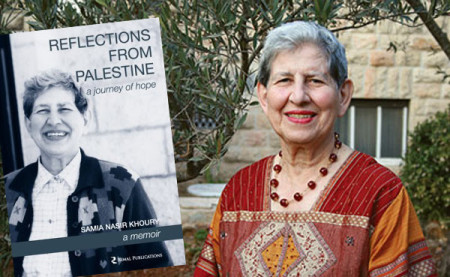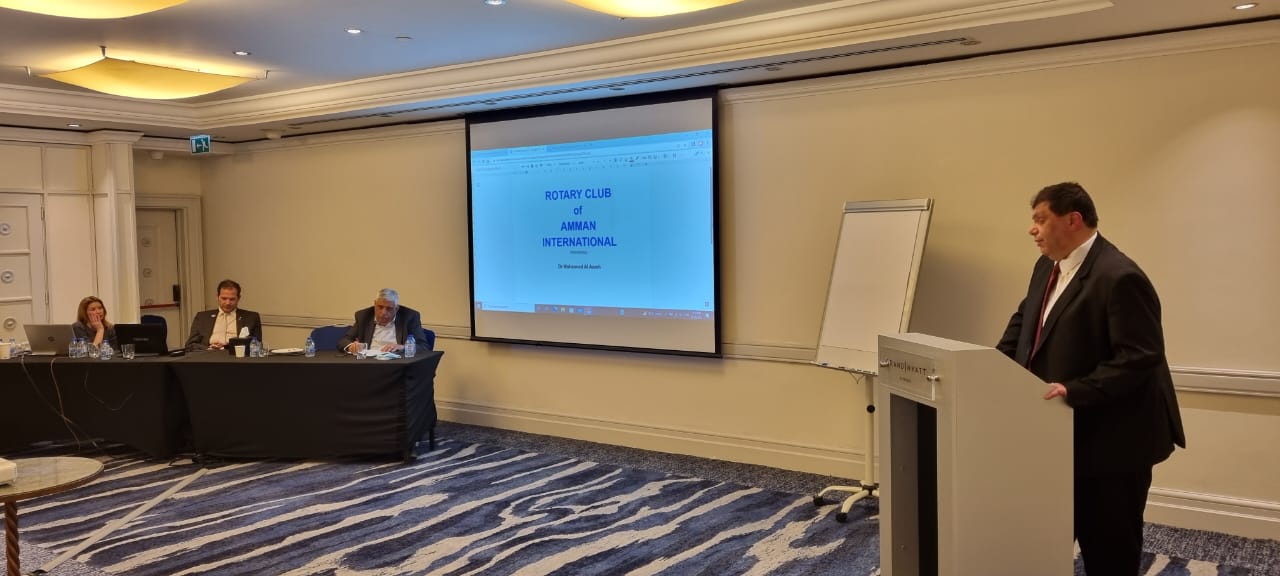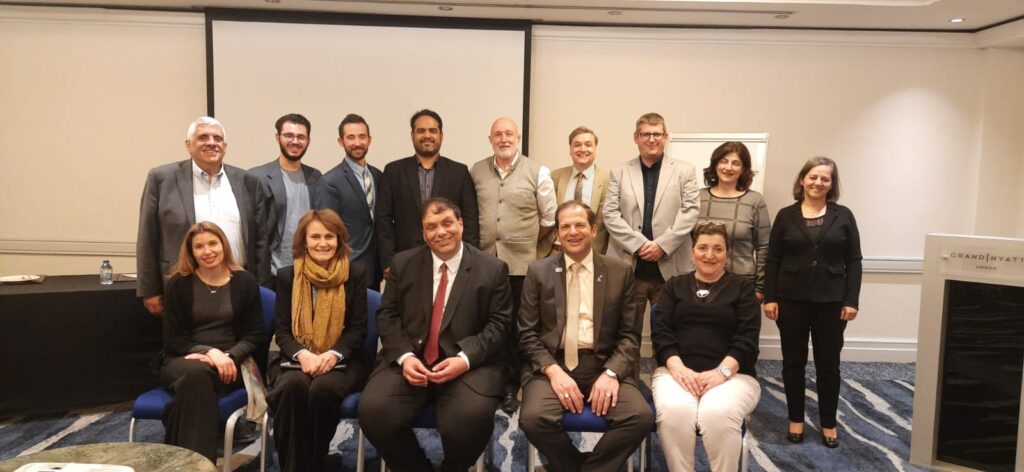
Previous “On Easter we hope that justice, security, & peace will eventually prevail”

The secretary-general of the Higher Council for Persons with Disabilities said that 11.2% of Jordanians are persons with disabilities. “For a while, Jordan, along with many regional countries, was calculating the figure at around 2% based on an extremely narrow criterion”. He said that Sweden which has an excellent health system “calculates that 17.5% of its people are persons with disabilities.” Muhanad was speaking at the Amman International (provisional) Rotary club meeting at the Hyatt hotel in Amman, Wednesday.
Dr. Muhanad al Azzeh, a former senator, who holds a Ph.D. in criminal law and a post-graduate degree in governance, democratization, and public policy from the Institute of Social studies in the Hague said that things are changing. “While there is a lot of work ahead of us there is hope for change.”
Al Azzeh who was born with a low level of sight and was legally blind by the age of 12 related how things have changed in Jordan. “People with disabilities for example were prevented from studying math and science due to a directive from the Prime Ministry in the 1970s.
The council for disabled persons executive detailed international progress regarding the rights of disabled persons. Al Azzeh said that 184 countries around the world (except for the United States) have ratified the Convention on the Rights of Persons with Disabilities (CRPD) since its announcement in 2006.
“In Jordan, we worked hard on a rights-based approach to disability law. The law was produced in 2017 after engagement with all sectors of Jordanian society. Each article was discussed with relevant stakeholders, and we used the feedback from disabled persons including children and including persons who have been bullied, harassed, and even violently and sexually abused and we integrated their comments into the law.
Al Azzeh says that while he is proud of the Jordanian disability law which he called “progressive” he noted concern about the implementation challenges. “We need political will, not necessarily from the top people but from the bureaucrats who look to disabled persons from the prism of charity, welfare and at best people needing rehabilitation and not persons with full constitutional rights.” Al Azzeh gave special credit to King Abdullah for understanding the importance of the preservation and the defense of the rights of all Jordanians including persons with disabilities.”
Al Azzeh reported that eighteen public schools in Amman’s Marka neighborhood, Karak and Ajloun are being readied to become inclusive schools. “Covid-19 caused us some delays, but we are now on course to be able to open these inclusive schools starting from September 2022/23 school year.” He praised the German development agency GIZ for committing Euro 30 million to help Jordan meet its inclusivity goals in the coming years.
“Our plans are for every ministry to prepare an action plan of how it plans to become inclusive, and we will be holding these ministries accountable to ensure that they carry out what they strategized to do.” He said the Council will produce an annual report that will name and shame institutions that have not fulfilled their own promises and goals.
In his talk, Al Azzeh spoke about the need for a deep change in the way society views persons with disabilities. “Some see in the disabled as a complimentary issue or as a charitable issue that can bring a person helping the disabled closer to God. What they miss out on is that a disabled person has the same constitutional rights as an able person. In fact, every one of us has disabilities. “You are an English-speaking rotary club but if I spoke to you in classical Arabic, you will not understand and in that small sense you would be disabled unless someone translated to you. The same applies to a person who is temporarily disabled but is fine if they have the tools to make the environment accessible to them. Al Azzeh said that he needed help to move from one location to another in the hotel because he is not familiar with the location. “However, at home and in my office, where the environment is accessible and familiar to me, I can move around without any help. A disabled person is not sick, and people should not talk to them as if they are ill in a hospital.”
At the end of the lecture, Al Azzeh answered questions and joined members of the club in a group photo.



تكافح مجلة “ملح الأرض” من أجل الاستمرار في نشر تقارير تعرض أحوال المسيحيين العرب في الأردن وفلسطين ومناطق الجليل، ونحرص على تقديم مواضيع تزوّد قراءنا بمعلومات مفيدة لهم ، بالاعتماد على مصادر موثوقة، كما تركّز معظم اهتمامها على البحث عن التحديات التي تواجه المكون المسيحي في بلادنا، لنبقى كما نحن دائماً صوت مسيحي وطني حر يحترم رجال الدين وكنائسنا ولكن يرفض احتكار الحقيقة ويبحث عنها تماشيًا مع قول السيد المسيح و تعرفون الحق والحق يحرركم
من مبادئنا حرية التعبير للعلمانيين بصورة تكميلية لرأي الإكليروس الذي نحترمه. كما نؤيد بدون خجل الدعوة الكتابية للمساواة في أمور هامة مثل الإرث للمسيحيين وأهمية التوعية وتقديم النصح للمقبلين على الزواج وندعم العمل الاجتماعي ونشطاء المجتمع المدني المسيحيين و نحاول أن نسلط الضوء على قصص النجاح غير ناسيين من هم بحاجة للمساعدة الإنسانية والصحية والنفسية وغيرها.
والسبيل الوحيد للخروج من هذا الوضع هو بالتواصل والنقاش الحر، حول هويّاتنا وحول التغييرات التي نريدها في مجتمعاتنا، من أجل أن نفهم بشكل أفضل القوى التي تؤثّر في مجتمعاتنا،.
تستمر ملح الأرض في تشكيل مساحة افتراضية تُطرح فيها الأفكار بحرّية لتشكل ملاذاً مؤقتاً لنا بينما تبقى المساحات الحقيقية في ساحاتنا وشوارعنا بعيدة المنال.
كل مساهماتكم تُدفع لكتّابنا، وهم شباب وشابات يتحدّون المخاطر ليرووا قصصنا.